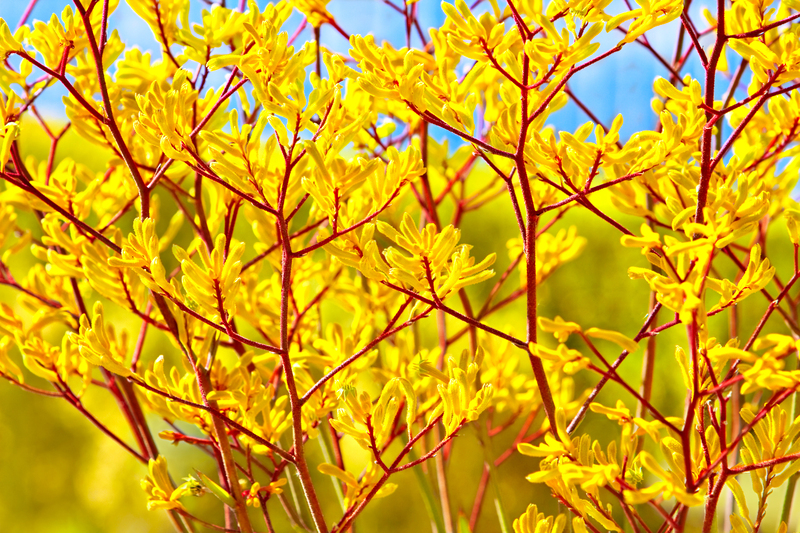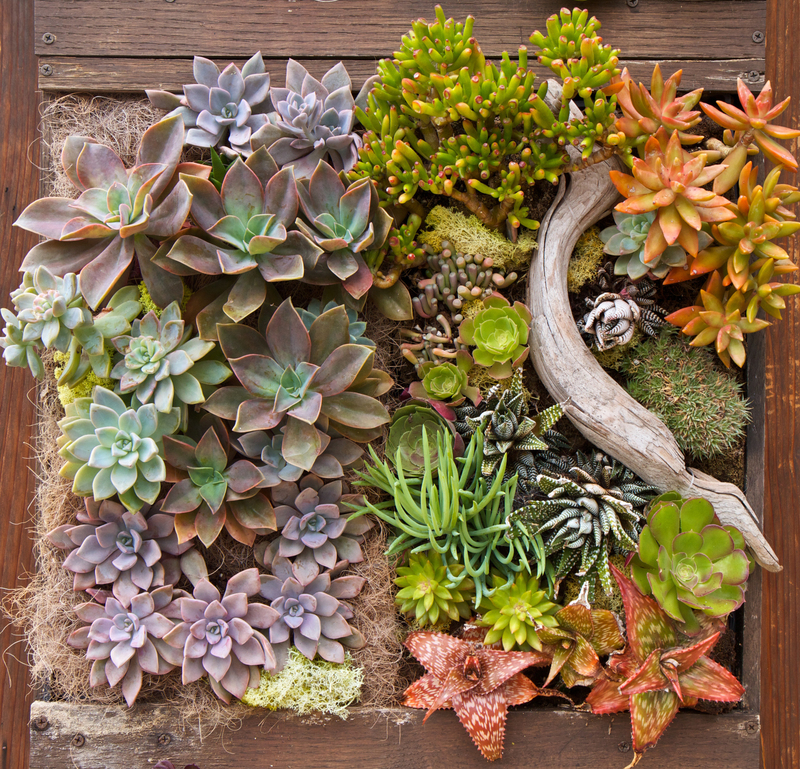Surviving Winter: Your Garden's Best Practices
Posted on 06/06/2025
Surviving Winter: Your Garden's Best Practices
As the golden leaves of autumn begin to fall and the first chills of winter approach, garden enthusiasts everywhere face the annual challenge of preparing their beloved landscapes for frosty months ahead. Surviving winter in the garden is more than simply cleaning up fallen leaves--it's about ensuring your plants, soil, and entire ecosystem are protected, nourished, and ready to bloom again with the first signs of spring. If you want your garden to survive the winter and thrive, knowing the best winter gardening practices is essential. In this comprehensive guide, we'll share effective strategies and time-tested tips to keep your garden healthy and beautiful year-round.
Understanding Winter's Impact on Your Garden
Cold weather, biting winds, and fluctuating temperatures are more than just uncomfortable--they can wreak havoc on everything from delicate perennials to established garden beds. Knowing how winter affects your garden is the first step to effective preparation.
- Soil Compaction: Snowfall and freezing rains can compact soil, harming root systems.
- Frost Damage: Unexpected frosts can kill tender plants and damage buds for the next growing season.
- Moisture Loss: Dried-out winter winds sap moisture from plants' leaves and stems.
- Animal Intrusion: Hungry rodents and deer may use your dormant garden as a buffet.

Best Practices to Help Your Garden Survive Winter
1. Start with a Thorough Clean-up
Preparation begins in the fall. Removing debris helps reduce pests and diseases that might overwinter in your garden. Here's how:
- Clear fallen leaves and dead stems, but keep a few areas untouched for beneficial overwintering insects.
- Weed thoroughly to prevent invasive growth come spring.
- Remove diseased plants and dispose of them outside the compost pile to avoid spreading pathogens.
2. Protecting Perennials and Shrubs
Perennial plants and shrubs are the backbone of many gardens. Ensuring their survival in winter is crucial:
- Apply a 2-4 inch layer of mulch around the base to insulate roots and moderate soil temperature.
- Use evergreen boughs, straw, or shredded leaves to cover crowns of fragile perennials.
- For young shrubs or those prone to winter burn, wrap them with burlap or install windbreaks.
- Water plants well before the ground freezes to help them withstand dry winter winds.
3. Winterizing Vegetable Gardens
You can help your vegetable garden survive the winter with a few extra steps:
- Remove spent crops and any remaining produce, which might harbor disease or pests.
- Plant cover crops, such as winter rye or crimson clover, to improve soil fertility and structure for next spring.
- Till in organic matter like compost or aged manure to decompose over the colder months.
- If you're overwintering crops like garlic or onions, add a thick layer of straw for insulation.
4. Protecting Trees and Woody Plants
Winter can be harsh on trees--especially young or thin-barked specimens. Here are some essential steps:
- Wrap trunks of young trees with tree guards or burlap to prevent sunscald and rodent damage.
- Mulch under the canopy, but avoid piling mulch against the trunk, which can cause rot.
- Prune dead or diseased branches in late autumn to prevent issues escalating through winter storms.
- Install barriers or fencing to deter deer and rabbits, which may strip bark and twigs for food.
5. Protect Container Plants
Containers are especially vulnerable to freezing and thawing. To give your container garden the best chance of surviving winter:
- Move pots against a sheltered wall, ideally facing south or west for warmth.
- Wrap pots with bubble wrap, burlap, or blankets to retain heat.
- Cluster pots together and insulate gaps with straw or leaves.
- Water sparingly--enough to keep soil barely moist--so roots don't dehydrate.
Garden Maintenance During the Winter Months
Just because the garden is resting doesn't mean you should forget it. Regular monitoring can detect issues early and prepare you for a robust spring:
- Check for snow or ice build-up after storms. Gently brush snow from branches to prevent breakage--avoid shaking, as brittle branches may snap.
- Inspect mulch and protective covers periodically, replacing or adjusting as necessary.
- Look for signs of animal damage--consider installing repellents if problems persist.
Winter Irrigation: To Water or Not?
Many gardeners overlook watering in winter. However, on thawed days, watering evergreens and recently planted trees can prevent drying out--especially if your climate experiences dry, windy spells. Just ensure the ground isn't frozen when watering. Avoid waterlogging, as roots are more prone to rot when cold and wet.
Common Mistakes Gardeners Make in Winter
Avoid these pitfalls to give your landscaping its best chance of surviving and thriving over winter:
- Neglecting irrigation: As mentioned, winter droughts can be a risk.
- Applying too much mulch: A thick "volcano" of mulch against tree trunks can invite rot and rodents.
- Not removing diseased material: Diseases thrive in fallen debris during mild winters.
- Heavy pruning: Pruning in early winter can stimulate new growth, which will not survive severe chill.
- Using non-breathable covers: Plastic sheeting can trap moisture and suffocate plants; choose breathable alternatives.
Eco-Friendly Winter Garden Practices
Winter is an ideal time to focus on sustainability and natural approaches:
- Leave seed heads on some plants for overwintering birds and pollinators.
- Allow a corner of your garden to stay "wild" for beneficial insects to shelter.
- Compost kitchen waste to enrich your soil for next year's crops and flowers.
- Use organic mulches (shredded leaves, straw, wood chips) to feed soil microorganisms naturally.
Planning for Next Season
Winter is a perfect season for planning. While outdoor chores slow down, take the time to:
- Order seeds and bulbs early, as popular varieties can sell out fast.
- Review your garden journal and note what worked--and what didn't--last season.
- Draft new designs or beds you'd like to add in spring.
- Research new varieties of winter-hardy plants or pest solutions.
Special Considerations for Different Climates
Not all gardens face the same winter challenges; your strategies may need to adapt depending on your geography.
Cold, Snowy Regions
- Snow is a great insulator; don't rush to clear it unless it will break branches.
- Add extra mulch after the ground freezes to prevent it from thawing and refreezing.
Temperate or Milder Climates
- Watch for heavy, wet rains that can compact soil. Maintain drainage in beds.
- Monitor for pests and diseases that survive milder winters, like snails or fungal spores.
Windy or Coastal Areas
- Install windbreaks or barriers to protect sensitive plants.
- Choose salt-tolerant plants if road treatments or sea spray is a concern.
Essential Winter Tools and Supplies
These tools can make your winter garden maintenance easier and more effective:
- Pruners and loppers for removing damaged wood.
- Mulch materials: shredded leaves, straw, wood chips.
- Tree guards, burlap for wrapping, and windbreak fencing.
- Watering can for occasional irrigation.
- Protective gloves and boots for cold-weather work.
- Compost bin or pile for ongoing organic recycling.

FAQ: Surviving Winter in Your Garden
Q: How do I know if my plants need more protection?
A: If you garden in USDA zones 3-6, expect harsher freezes. Research each plant's hardiness, and when in doubt, add mulch or protective covers.
Q: Should I fertilize in winter?
A: Generally, it's better to fertilize in early fall or spring. Fertilizing during winter dormancy won't benefit most plants.
Q: Can I plant anything in winter?
A: Certain bulbs (garlic, tulips, daffodils) are best planted in late fall. In milder regions, winter crops such as kale or winter lettuce may succeed with protection.
Q: How do I stop animals from eating my plants?
A: Use fencing, repellents, and plant unpalatable species near borders. Keeping the garden tidy also reduces shelter for pests.
Conclusion: Prepare, Protect, and Enjoy a Winter-Ready Garden
With the right winter garden best practices, you can sleep soundly through the snowy nights, knowing your plants are protected, roots are warm, and your soil is quietly preparing for spring's explosion of growth. Surviving winter in the garden is as much about prevention and preparation as it is about embracing nature's rhythms. Use this winter to cherish the slower pace, tend to the quiet needs of your landscape, and plan for an even more delightful year ahead in your own patch of paradise.
Now is the time--bundle up, get outdoors, and give your garden the winter care it deserves!
Latest Posts
Crafting Your Own Miniature Garden: The Container Gardening Approach
Spark Imagination with a Kid-Appropriate Garden
Navigate your first garden with 9 crucial beginner tips
Craft a Harmonious Zen Garden with Innovative Design Ideas
Weather-Wise: Ensuring Your Garden's Survival in Severe Storms

